16 start with E start with E
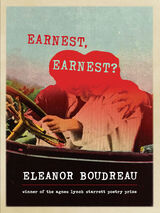
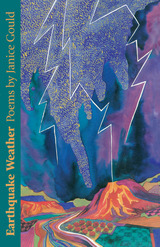
Showing a steady courage in the midst of this alienation, her words are also stark testimony to the struggle of an individual caught in social and emotional contexts defined by others. In Earthquake Weather, as in an evolving friendship, Gould opens herself to the reader in stages. "I did not know how lonely I was / till we began to talk," she writes in an opening section, setting the introspective tone of what’s to come. She begins with a focus on those universal truths that both bind us and isolate us from each other: the pain of loss, the finality of death, our longing to see beneath the surface of things. Next, the poet turns to her growing-up years during the Vietnam War and the civil rights movement. She describes a family in turmoil and an Indian heritage that, oddly, was one of the factors that made her feel most disconnected from other people. And she writes poignantly about her increasing alienation from prescribed sexual roles. "What’s wrong with me? / Where do I belong? Why / am I here? Why can’t I / hold on?" Finally, as in a trusting friendship, Gould offers the reader vivid word portraits of relationships in her life—women she has loved and who have loved her.
Erotic and deeply personal, these poems serve as both a reconciliation and affirmation of her individuality. "Yet would you deny / that between women desire exists / that in our friendship a delicate / and erotic strand of fire unites us?" The poems in this book, says critic Toby Langen, are most powerful for their "courageous drawing on experience and feelings." They will speak to many general readers as well as anyone interested in questions of gender and identity, including students of literature, lesbian/women’s studies, social/cultural studies, or American Indian studies.
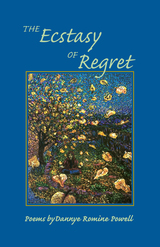
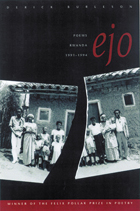
In 1994 the worst episode of genocide since the Holocaust of the Second World War ravaged the Central African country of Rwanda. Derick Burleson lived there and taught at the National University during the two years leading up to the genocide. The poems in this collection explore the cataclysm in a variety of forms and voices through the culture, myths, and customs he absorbed during this time. Ejo, meaning "yesterday and tomorrow" in Kinyarwandan, celebrates in language both lyrical and austere the lives of the friends Burleson made in Rwanda, those who survived to tell their own stories, and those whose voices were silenced.
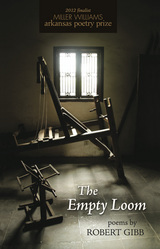
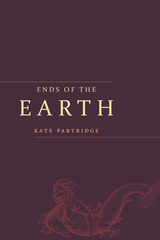
While the poems turn an inquisitive, contemporary lens to the subject of Alaska, elements throughout the book are influenced by twentieth-century writers like Elizabeth Bishop and Marianne Moore. The manuscript also combines personal experience with collaged material from the Epic of Gilgamesh, Walt Whitman's notebooks, and other classic sources, to investigate the ideas of love, isolation, and location. Through humor and observation, Partridge takes a new look at what it means to live in urban Alaska and the world at large.
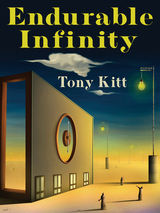
In Endurable Infinity, Tony Kitt creates his own tangential surrealism through wonder, intuition, and surprising connections. If the original surrealists of the 1930s sought to unleash the unconscious mind by bringing elements of dreams to the waking world with jarring juxtapositions, Kitt’s poetry is more about transmutation, or leaps, from word to word and phrase to phrase. He takes American poet Charles Borkhuis’s statement that contemporary surrealist poets write “from inside language” as a challenge and a call to action.
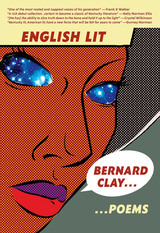
Autobiographical poetry from one of Kentucky’s rising Affrilachian literary stars.
Bernard Clay’s autobiographical poetry debut, English Lit, juxtaposes the roots of Black male identity against an urban and rural Kentucky landscape. Hailed as one of the most authentic voices of his generation, Clay artfully renders coming-of-age in the predominately Black West End of Louisville, Kentucky. Balancing the spirited grit of a farmer and the careful lyricism of a poet, English Lit is a triumph of new Affrilachian—African American and Appalachian—literature.
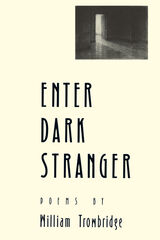
The world of William Trowbridge is one preoccupied with loss, with the fall from some possibility of grace that all who are born must bear. In the title poem of Trowbridge’s first full-length collection the poet calls our attention to movies, to Shane in particular. He asks us to identify, not with Shane, the lonely knight on a nameless quest, but with the much more lonely, and real, Jack Palance, the Prince of Darkness.
Trowbridge favors the villain, the outcast, the imperfect, the sinner, the alienated: King Kong, the Frog Prince, Frankenstein’s monster.
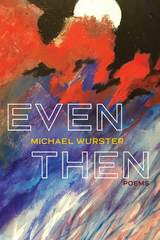
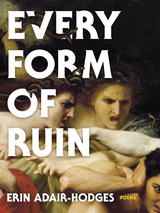
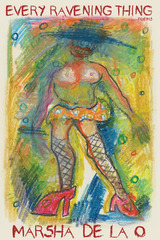
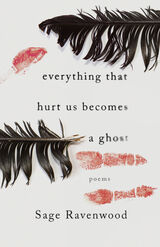
![front cover of [explicit lyrics]](https://www.bibliovault.org/thumbs/978-1-61075-581-8-thumb.jpg)
Winner, 2016 Miller Williams Poetry Prize, edited by Billy Collins
Randall Jarrell said that when you read a poem “you are entering a foreign country whose laws and language and life are a kind of translation of your own.” In [explicit lyrics], we are visitors to a world that is familiar as if the poems are occurring in our town, on the streets where we live. But the laws have changed, and what is normally important is no longer relevant. What was meaningless is now everything.
As the title indicates, these poems are lyrics—musings on the small decisions required by existence in the modern world. They contain the grand themes of art—life, love, and mortality—but not where you expect. The smallest and most mundane objects become the catalyst for reevaluating our roles in society and the world. This is not poetry as art. This is life as art, from a country where poetry is the only language.
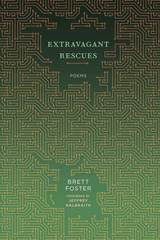
The poems ask questions with hymnlike couplets, in a language of the gospel of empathy. We are allowed to rethink our choices, question and be wary of our machinery, and, in the end, with metaphors that channel feelings of loss, humor, and compassion, we are reminded “to come, and dream, with eyes wide open / and set within the vessels of our waking selves, / of ever more intricate schemes, extravagant rescues.”

READERS
Browse our collection.
PUBLISHERS
See BiblioVault's publisher services.
STUDENT SERVICES
Files for college accessibility offices.
UChicago Accessibility Resources
home | accessibility | search | about | contact us
BiblioVault ® 2001 - 2024
The University of Chicago Press









